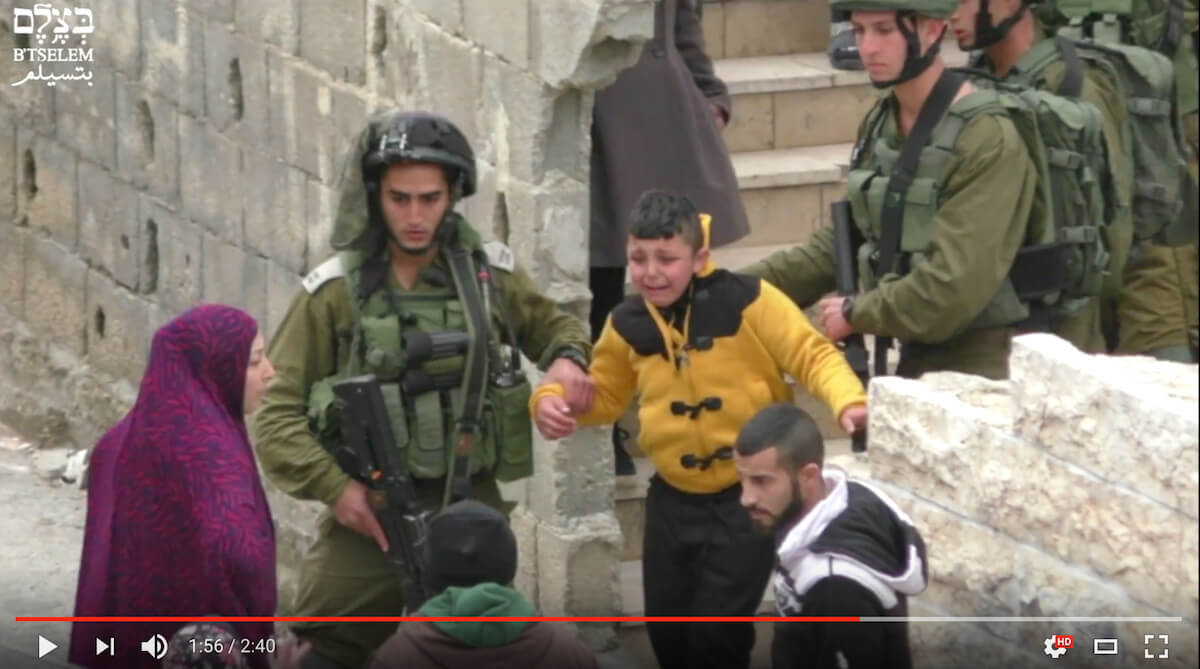In her book, “Condition Critical: Life and Death in Israel/Palestine” Dr. Alice Rothchild emotes courage and sincerity to a degree that begs analysis: Who is she addressing and to what end? The book’s title answers the latter of the two interrelated questions: All those who are genuinely concerned with Israel/Palestine should better rush to resuscitate their critically ill charge before it is too late because “the Israeli government is on a suicide mission.” All through her book Dr. Rothchild bears witness to how critical and unjust the condition is.
While Richard Gere was in Israel and the occupied West Bank promoting his film “Norman,” he was recorded in an unguarded moment wandering the desolate streets of Hebron’s Old City. A dumbfounded Gere is near at a loss for words in the clip, which aired on Israel’s Channel 2 network. “I mean it’s like…it’s exactly like what the what the Old South was in America. Blacks knew where they could go, they could drink from that fountain, they couldn’t go over there, they couldn’t eat in that place. It was well understood. You didn’t cross it or you’d get your head beat in or lynched,” Gere said.
Howard Cohen relates the story of one of his students at an engineering college in the Negev struggling to keep up with his studies after Israeli police killed his father, demolished his home: “He had used the word killed, it was me who had used the word murder, but the words were irrelevant at this moment. He wasn’t interested in making a political statement to me, he was making an existential one. That was clear enough. ‘You see it’s so difficult for me,’ he went on, wiping away the tears that had welled up at the corner of his eyes and which threatened to stream down his face. ‘Everything was under the rubble. I even had a workbook for the class but that too was under the rubble together with my ID card and all our other belongings. They didn’t give us any time to leave. They bulldozed the house with all of our possessions in it. I’m trying to return to my studies. It’s important for me to continue, in spite of everything. But it’s so difficult for me. My head just isn’t there. And it’s going to be difficult for me to attend all the classes and prepare for the presentation.'”
Palestinian activists on Sunday filmed Israeli forces dragging 8-year-old Sufian Abu Hitah through the al-Harika neighborhood of Hebron in the occupied West Bank for more than hour. The video, received and edited by Israeli rights group B’Tselem, shows the boy crying and barefoot, being pulled by his arm by Israeli forces as they tried to get the boy to identify other children who soldiers suspected of throwing rocks and Molotov cocktails at the nearby illegal Israeli settlement of Kiryat Arba earlier that day.
Eman Ghanayem writes, “In light of the rapid growth in the Palestine activism community that is led, administered and predominated by non-Palestinians, the following is a letter of affirmations and requests made to address that community. This letter represents a Palestinian plea and critique that can henceforth improve the language used to address Palestine and Palestinian liberation movements and create better relationships between Palestinians and their allies.”
Robert Silvers, the late editor of the New York Review of Books, ran Tony Judt’s great piece imagining a one-state democracy in Israel and Palestine in 2003, and then he ran away from it. Silvers could take on the establishment over Vietnam, Iraq, and Freud; but he couldn’t really go after Israel.
Palestinian society has condemned Israel’s arrest and interrogation of Omar Barghouti, a co-founder of the Boycott, Divestment and Sanctions (BDS) movement as the next step in Israel’s fight against BDS. On Sunday, Israel arrested Barghouti on charges of tax evasion, raided his family home in Acre, Israel, held him for 16 hours and released him — however the BDS co-founder has been subjected to daily interrogations with Israeli authorities since then. Fellow BDS movement co-founder Adnan Ramadan says this is just another step in Israel’s strategy against the BDS movement: “It’s part of their war against the campaign, but it won’t work. They can arrest whoever they want, they can do more than that, but that won’t prevent people from continuing to use BDS as a tool in the struggle for Palestinian freedom.”
Palestinians are both scared and skeptical of the prospect of Israeli Defense Minister Avigdor Liberman going through with his threat to seize money from the Palestinian Liberation Organization’s (PLO) Palestinian National Fund (PNF), which delivers money to the families of Palestinian prisoners and those killed or injured by Israel under political circumstances. According to Liberman, the funds provide “massive support” to terrorism against Israel. Palestinians find the statement ironic, because on average families estimated that around three-fourths of the money sent to them is given to their loved ones in prison, who spend the money on commissary items within Israeli government prisons, essentially meaning the money is funneled into the Israeli government.
Soccer club Beitar Nordia was formed to allow Beitar fans to separate from racist Beitar Jerusalem and its fanbase La Familia. “We aim to provide a voice to the silent majority who oppose La Familia,” says chairman Itsek Alfasi.









